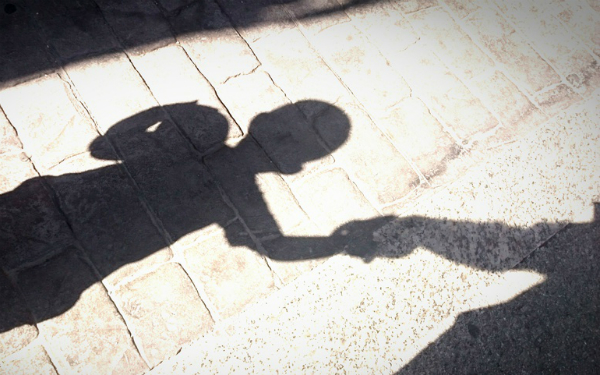
By Adam Birchall
As a principal social worker I thought I knew safeguarding like the back of my hand. Last month I realised how wrong I was after I attended the National Local Authority Designated Officers (LADO) conference in Birmingham.
The role of LADOs is too often misunderstood or forgotten. They are responsible for managing and overseeing cases where an allegation is made about a person working with children. They play a vital safeguarding role in combating abuse – you only have to look at the recent child abuse scandals in football to see why.
To say the role is complex is an understatement. LADOs are involved from the initial phase of the allegation through to the conclusion of the case, and have to ensure a robust but fair response to safeguarding concerns.
Friends and family often tell me ‘I couldn’t do your job’ – it’s something social workers often hear. I’m not one to shrink from a challenge but I don’t know if I could do a LADO’s job. I have survived in statutory children’s social work because of those times when I see great outcomes for children, but LADOs often don’t get to see the outcomes.
The LADO role is incorporated into the knowledge and skills statements for practice supervisors, demonstrating, I think, the level of complexity and leadership that those holding the role have to manage.
To quote Dez Holmes (chief executive of Research in Practice), who spoke at the conference – “if we don’t have resilient LADOs, we won’t have a resilient safeguarding system”. They are the unsung heroes of safeguarding and I think it’s time that they get some recognition for the hard work they do, often behind the scenes.
The consequences of childhood abuse can be devastating. At the conference we heard from ‘Nabila’ a woman who was abused by an Imam at her local mosque. She described the torture she went through on a daily basis and how, as she grew older, she cut her face to make herself less attractive to the perpetrator.
Nabila went on to self-harm more and, as an adult, ended up in an abusive relationship. She also had a difficult relationship with her family, who didn’t know what had happened to her. Nabila is using her experiences to raise awareness of abuse. It was wonderful to hear her speak of how life for her now is much more positive. But she knows it could have gone the other way.
At the conference Nabila said “I knew for sure that I was not his only victim”. Her abuse took place before the LADO role was created, and she was quick to identify that the role could have helped safeguard other children from abuse.
Nabila brought home some important messages. Children’s services are often geared to combating abuse in the home. When abuse happens in the community by people who are in trusted positions it is vitally important that the LADO is involved to make sure children are safeguarded, and this involves protecting all children that the abuser might come into contact with through their position.
It’s easy to think, when we hear stories like Nabila’s or Andy Woodward’s account of the abuse he experienced as a young football player, that things like this don’t happen now. They do. Forty six of the incidents reported to Operation Hydrant, the police investigation into abuse that was set up after Woodward’s disclosures, relate to the 2005 to 2016 period. These are likely to be the tip of the iceberg.
Never has the role of the LADO been more significant. They are the backbone of safeguarding in the wider community. The conference opened my eyes to the breadth and complexity inherent in the role.
The national LADO network know that they have obstacles to overcome. They were quick to recognise the challenges inherent in the role; the need to raise their profile, ensure the voices of children are at the heart of what they do and provide a more consistent approach nationally. But they are ambitious and I look forward to the network developing its voice and championing safeguarding in areas that traditional social work can’t touch.
Adam Birchall is the principal social worker for children, young people and families in Solihull


 A trauma-informed approach to social work: practice tips
A trauma-informed approach to social work: practice tips  Problem gambling: how to recognise the warning signs
Problem gambling: how to recognise the warning signs 




 Find out how to develop your emotional resilience with our free downloadable guide
Find out how to develop your emotional resilience with our free downloadable guide  Develop your social work career with Community Care’s Careers and Training Guide
Develop your social work career with Community Care’s Careers and Training Guide  ‘Dear Sajid Javid: please end the inappropriate detention of autistic people and those with learning disabilities’
‘Dear Sajid Javid: please end the inappropriate detention of autistic people and those with learning disabilities’ Ofsted calls for power to scrutinise children’s home groups
Ofsted calls for power to scrutinise children’s home groups Seven in eight commissioners paying below ‘minimum rate for home care’
Seven in eight commissioners paying below ‘minimum rate for home care’
 Facebook
Facebook X
X LinkedIn
LinkedIn Instagram
Instagram
What’s with the click-bait headline? Why did you need us to have to click into the story to see it was about LADOs? Are you a serious industry publication or a buzzfeed knockoff?
The role of LADO needs to be more publicised. As a LADO I’m often disappointed when people who work with children do not even realise what a LADO is and does.